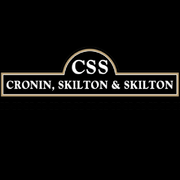What's the Difference Between Chapter 7 & 13 Bankruptcy?

When you’re up to your neck in debt collection notices, it’s hard to see a path to financial security. Luckily, bankruptcy attorneys work hard to help clients find stability. The first step to a clean slate is choosing which bankruptcy route to take—Chapter 7 or Chapter 13. To learn how these options differ, consider the following guide.
Chapter 13 Bankruptcy: Reorganization
If you’re receiving a paycheck regularly and have some money to pay off your debts—but not enough to meet the current minimum payments—Chapter 13 bankruptcy is right for you. This strategy allows those seeking debt relief to establish a new repayment plan they can afford.
While you’ll still have to pay off your debts in the long run—they won’t simply be wiped out—those with too much money to qualify for Chapter 7 bankruptcy will enjoy some other benefits. For example, Chapter 13 allows you to hold onto any property, so you don’t have to sell your home to immediately pay off your lenders.
It also allows debtors a chance to cover late mortgage or car payments. If you have debts that the government won’t discharge—such as missed child support payments—Chapter 13 will allow you to pay them off within three to five years.
Chapter 7 Bankruptcy: Liquidation
 This type of bankruptcy offers those in debt an immediate fresh start by wiping out their debts. On the other hand, it may also be harder to heal once the filing is complete. Chapter 7 will remove your unsecured debts, such as lingering credit card balances and unpaid medical bills. However, if you make over a certain amount of money relative to your debt, you won’t be able to qualify for this option.
This type of bankruptcy offers those in debt an immediate fresh start by wiping out their debts. On the other hand, it may also be harder to heal once the filing is complete. Chapter 7 will remove your unsecured debts, such as lingering credit card balances and unpaid medical bills. However, if you make over a certain amount of money relative to your debt, you won’t be able to qualify for this option.
If you’re constantly receiving calls, letters, or emails from lenders and creditors, Chapter 7 is a quick way to put an end to the harassment. While you won’t have to pay off these debts, you will have to sell your property through a bankruptcy trustee, who will use the funds to pay your creditors back.
However, if you don’t have enough property to pay them back, or any property at all, they won’t receive payment. Since you won’t be using a repayment plan to settle your debts, you can expect a much greater drop in credit from this type of bankruptcy.
If you’re looking for a bankruptcy attorney to help you determine which type you qualify for, reach out to Cronin Skilton & Skilton, P.L.L.C. From their locations in Nashua and Charles City, IA, this law firm has been helping clients for over eight decades. In addition to debt relief, they also work on personal injury, estate planning, family law, and real estate cases. To learn more about their wide range of practice areas, visit the website or call (641) 435-2462 today to arrange for a consultation with a trusted bankruptcy attorney.
About the Business
Have a question? Ask the experts!
Send your question

